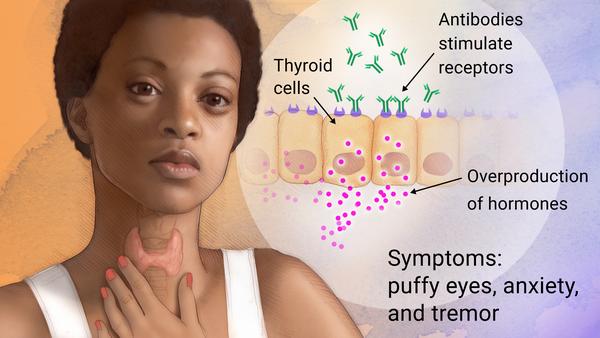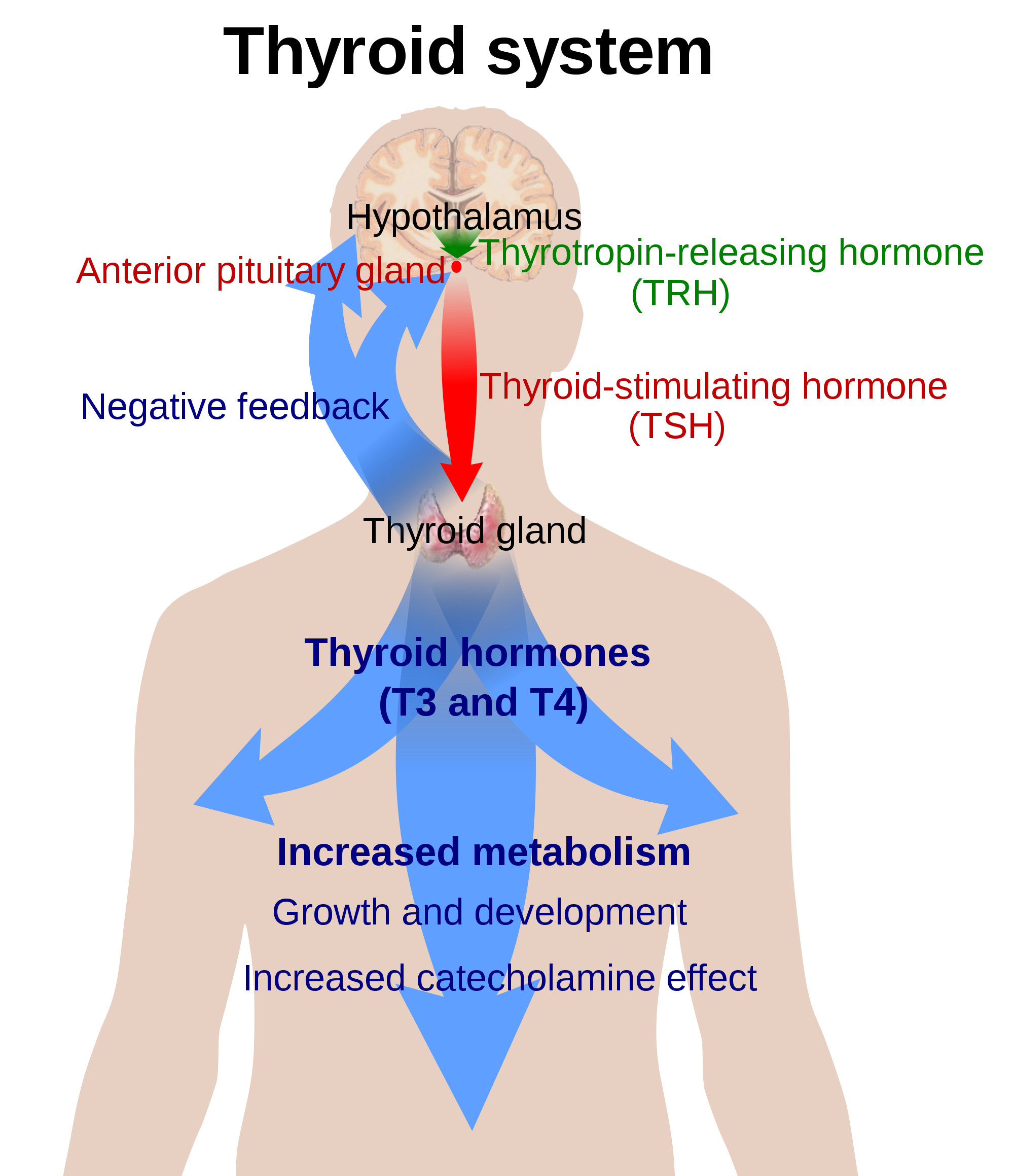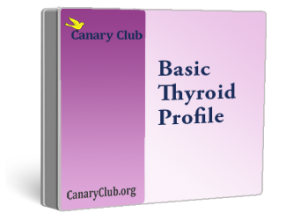Graves' disease is the most common form of hyperthyroidism.
It is becoming more well-known due to talk show host Wendy Williams' announcement that she suffers from this consuming health issue.
 The thyroid gland helps set the rate of metabolism, which is the rate at which the body uses energy.
The thyroid gland helps set the rate of metabolism, which is the rate at which the body uses energy.
When the thyroid is too active, it makes more thyroid hormones than the body needs. High levels of thyroid hormones can cause side effects such as weight loss, rapid heart rate, and nervousness.
Graves' is an uncommon disease that affects 2 percent of all women at some time in their lives. It tends to affect women between the ages of 20 and 40, although it occurs in infants, children and the elderly.
Graves' Disease Is An Autoimmune Condition
Graves'/Hyperthyroidism is caused by the effects of too much thyroid hormone on tissues of the body.
Although there are several different causes of hyperthyroidism, most of the symptoms that patients experience are the same regardless of the cause (see the list of symptoms below). Because the body's metabolism is increased, patients often feel hotter than those around them, and can slowly lose weight even though they may be eating more. The weight issue is often confusing since some patients actually gain weight because of an increase in their appetite.
Patients with hyperthyroidism usually experience fatigue at the end of the day but have trouble sleeping. Trembling of the hands and a hard or irregular heartbeat (called palpitations) may develop. These individuals may become irritable and easily upset.
When hyperthyroidism is severe, patients can suffer shortness of breath, chest pain, and muscle weakness. Usually, the symptoms of hyperthyroidism are so gradual in their onset that patients don't realize the symptoms until they become more severe. This means the symptoms may continue for weeks or months before patients fully realize that they are sick.
In older people, some or all of the typical symptoms of hyperthyroidism may be absent, and the patient may just lose weight or become depressed.
Graves' Disease: Common Symptoms of Hyperthyroidism
-
Heart palpitations
- Heat intolerance
- Increased metabolism and appetite
- Nervousness
- Insomnia
- Breathlessness
- Difficulty swallowing
- Increased bowel movements
- Light or absent menstrual periods
- Fatigue
- Fast heart rate
- Trembling hands
- Bulging eyes
- Weight loss
- Muscle weakness
- Warm moist skin
- Hair loss
- Staring gaze
How Is It Caused?
According to the Mayo Clinic, in Graves' cases, the antibody thyrotropin receptor antibody (TRAb) acts like the pituitary hormone Thyroid Stimulating Hormone (TSH), which normally regulates the thyroid gland. Thus the usual regulation of the thyroid is overridden by TRAb, causing an overproduction of thyroid hormones. While this part is known, the jury is still out on what actually causes this to happen. Theories include side effects of long-term stress or infection.
How Is It Diagnosed?
If you suspect you might suffer from Graves' disease, it can be diagnosed very easily with one of our easy to use, at home thyroid test kits such as the comprehensive AdvancedPlus Hormone Profile or our Basic Thyroid Panel.
How Can It Be Treated?
Our chief medical advisor and hormone expert, Dr. Richard Shames, says "The standard American Medical Association party line for treating Graves' disease describes only the ‘big three’ of surgery, radiation, and harsh prescription medicines. Over the years I have had many hyperthyroid patients who have successfully opted for something more natural and less invasive than these three."
For instance, an overactive thyroid can often be more optimally controlled with natural nutritional supplements such as carnitine, quercetin, alpha lipoic, or soy isoflavone pills. These are more familiar when used in small doses for a variety of good nutritional purposes unrelated to the thyroid. At higher doses, however, they each have the ‘side effect’ of slowing down thyroid hormone production.
Graves' sufferers can take advantage of this side effect by using one or more of these innocuous items to deliberately make their thyroid gland less overactive. Such over-the-counter nutrients from vitamin stores can be utilized by themselves instead of regular medical therapy, or they can be utilized combined with prescription medicine.
Adding these nutritional items to a standard medical protocol can enable a thyroid patient to avoid the all-too-common toxicity of higher doses of regular Graves’ prescriptions. This has been routine in my thyroid practice over the last 30 years, with many people and their regular doctors surprisingly pleased."
Dr. Shames adds that if natural supplements aren't doing the trick, one can still ask for less invasive treatment before doing the commonly prescribed Radioiodine Ablation (RAI), which is radioactive and destroys thyroid cells. A short course of the anti-thyroid medications PTU and Tapezole may be sufficiently effective. That said, RAI is a proven intervention that can help with severe thyroid conditions such as thyroid cancer.
 Recommended Canary Club Thyroid Tests:
Recommended Canary Club Thyroid Tests:
AdvancedPlus: tests thyroid, adrenal, and sex hormones, plus Vitamin D.
Basic Thyroid Profile: measures thyroid hormones TPO, fT3, fT4, TSH.
Comprehensive Elements + Iodine + Thyroid: tests for toxic heavy metals and essential nutrients that can affect the thyroid, plus thyroid hormone testing.
Disclaimer: These statements have not been evaluated by the Food and Drug Administration. This information and products are not intended to diagnose, treat, cure or prevent any disease. Check with your health practitioner before taking any action.

